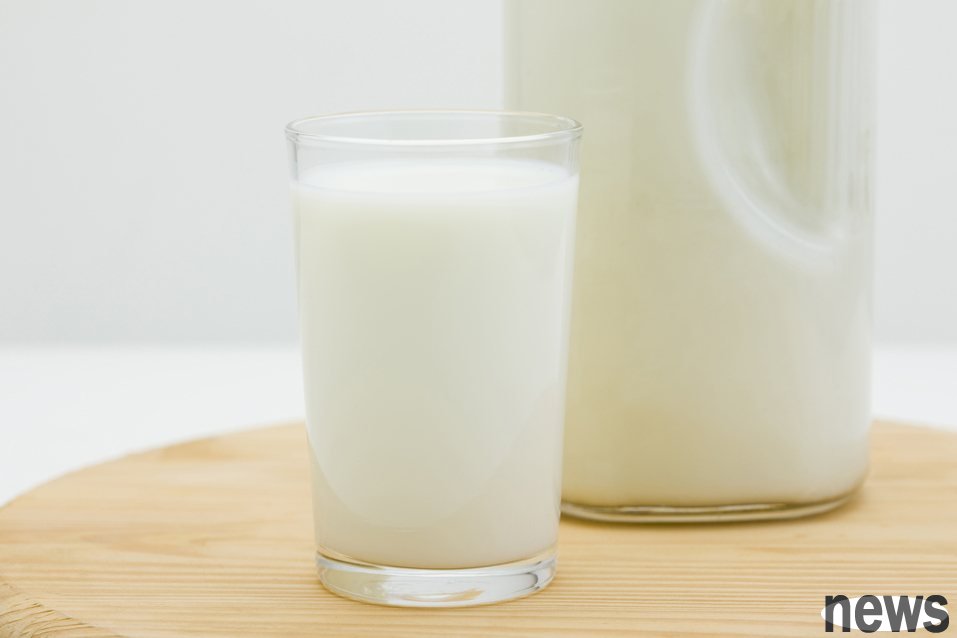I posted on 2023-12-26 that I drink this type of milk every day, and the chance of Parkinson's disease is 30% higher? , the next day reader Arthur left a message: "The professor has another article that allows people to drink milk with peac...

I posted on 2023-12-26 that I drink this type of milk every day, and the chance of Parkinson's disease is 30% higher? , the next day reader Arthur left a message:
"The professor has another article that allows people to drink milk with peace of mind, which has benefited a lot. I would like to ask the professor: 1. You don't drink milk yourself. Please ask how to pay attention to food intake if you lack the nourishment provided by milk? I think there are many people who are lactose intolerant or who rarely drink milk want to know. 2. The professor seems to have mentioned that the point is not to drink whole-fat, low-fat or fat-free milk (this is a doctor). They all talk about each other, but balanced nutrition and exercise. If you eat lightly but have cardiovascular diseases, is it OK to drink whole milk every day? (Because some friends don’t like drinking low-fat fat milk). Thank you for your teaching~~~ The topic: Taiwan’s fresh milk is expensive, and it may not be that every family can bear if you want to drink every day, but the irritation of milk powder is not natural when soaking in milk powder. "Let me explain it first. I don't drink milk, which means I don't drink milk as a drink, but I still eat foods with added milk, such as mash, and dairy products, such as quality. As for why I don't drink milk, it's mainly because I can "eat" food and "drink" tea or coffee. That is, I want the hot amount to be taken from food, not drinks (so of course I don’t drink milk tea).
Although I have published many articles that denounce "milk is harmful", it is purely a standpoint for science, not to encourage, nor to promote drinking milk. In fact, milk is not necessary only in terms of adult nutritional intake. All the nourishment that milk can provide can be obtained from other foods.
As for the readers' questions about "how should we pay attention to food intake", the Taiwan Ministry of Welfare has established a Healthy Nine-Nine Video Information Platform, which currently has more than 1,500 videos, and among them are balanced diets.
As for the choice of whole-fat, low-fat or fat milk, it is not only doctors who speak of it, but all relevant experts and students in the entire medical community. Please see the following article:
2013: High dairy fat intake related to less central obesity: a male cohort study with 12 years’ follow-up (A male cohort study with 12 years’ follow-up: A male team study that tracks for a period of 12 years).
2018: Normal/high-fat milk consumption is associated with higher lean body and muscle mass in Japanese women aged between 40 and 60 years: a cross-sectional study.
2018: Effect of whole milk compared with skimmed milk on fasting blood lipids in healthy adults: a 3-week randomized crossover study. Conclusion: Taking 0.5 liters of whole fat milk per day will not adversely affect fasting blood lipids, blood sugar or insulin. In addition, taking whole milk increases HDL-protein sterol concentration compared to fatty milk. These findings suggest that if higher energy content is considered, whole milk may be considered part of a healthy diet for normal people with citric sterol.
2021: Decreased risk of all-cause and heart-specific mortality is associated with low-fat or skimmed milk consumption compared with whole milk intake: A cohort study.
2021: Intake of dairy products and associations with major atherosclerotic cardiovascular diseases: a systematic review and meta-analysis of cohort studies. Conclusion: High-fat milk is positively related to the risk of coronary heart disease, while cheese is negatively related to the risk of coronary heart disease. The results of the study should be explained in the context of the observed abnormality.
2022: High vs. low-fat dairy and milk differently affects the risk of all-cause, CVD, and cancer death: A systematic review and dose-response meta-analysis of prospective cohort studies (A combination of systematic review and dose responses in prospective team studies). Conclusion: High-fat milk consumption is related to higher all-cause mortality, cardiovascular disease mortality and cancer mortality. However, total dairy intake is related to lower risk of death from cardiovascular disease.
2022: Saturated fats, dairy foods and cardiovascular health: No longer a curious paradox? Overall, limiting dairy intake does not seem necessary, although further understanding of the relationship between different dairy types and chronic diseases, especially type 2 diabetes.
2023: High-Fat Dairy Products May Decrease the Risk of Chronic Kidney Disease Incidence: A Long-Term Prospective Cohort Study.
From the above articles, we can see that whole milk can be healthier or more unhealthy, depending on who has the experience, what stands out, or which question is. The only thing I can tell you is that the U.S. dietary guidelines are repeatedly emphasized on choosing low-fat or fat milk and dairy products.
Original text: Whole fat, low fat, and fat, which one is healthierResponsible editor: Gu Zihuan